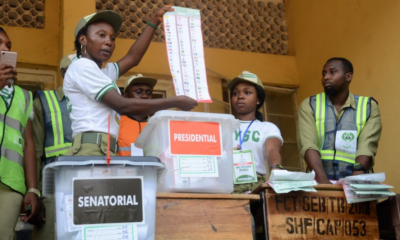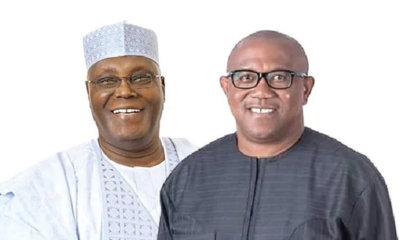Energy
FG To Save Up To N1 Trillion On Subsidy Removal


The Minister of State, Petroleum, Chief Timipre Sylva on Thursday said the Federal Government will make over N1 trillion annually from fuel subsidy removal.
The Federal Government has been under fire ever since the pump price of petroleum got increased due to subsidy removal.
With the subsidy removal the Government would safe up to N1 trillion yearly and channel the money to fund other critical components of the economy.
He said: “I believe that this discussion around subsidy has been a vexed issue that has captured the imagination of this country for a long time now. Successive administrations have attempted to deregulate.
But sometimes, some administrations lacked the political will and at other times, the time was not good for it. And why did I say the time was not good for it? Does that imply the time is good for it now?
The problem around deregulation is that people must understand first, that the product we are talking about is a derivative of crude oil. It is refined from crude oil.
Therefore, it has a direct relationship with the price of crude oil. If the price of crude oil goes up, then you expect that it would reflect in the price of the derivative.
“So, the best time to achieve this we looked at was the time when crude oil prices are low so that Nigerians will get the benefit of those low prices. In March, when we announced the deregulation, the prices were low and that advantage was transferred to the consumer. So, we brought down the price of petrol.
The unfortunate thing is that when we brought down the price of petrol, nobody reacted in the market place. The prices were the same. Nobody reduced their prices because price of petrol had reduced. Even bus fares, taxi fares were the same. It did not go down when we reduced the pump price of petrol.
We thought that those people in the market; the transport drivers and transport owners would reduce their price. But nobody reduced their prices. But anytime there is even a kobo increase in the pump price of product, you see that people will increase their prices triple fold and four fold.
“At this moment, let Nigerians not be fooled; there are people who are ready to take advantage of every situation to create anarchy and chaos. And it is this people that are at work now.
Is anybody saying that this policy direction is a wrong policy direction? That is the discussion we should be having. If it is a wrong policy direction, why has every successive government attempted to do the sane thing?
“Because it is something that is unsustainable. Subsidy is unsustainable. Let us look at it: Subsidy means that you buy the product at a certain price and then you reduce the price and sell it at a loss to the people.
It is something that is good to do. It is something that our president would like to do so much because of his love for the common man. But is it something that can be sustained in perpetuity? You get the product and sell it less at the pump. And that is not the only subsidy.
You also subsidise the effects that is used to import the product. So at the end, the subsidy is going on two ways. It is like burning your candle from both ends.
How long can that candle last? So in the wisdom of the President and all of us, we felt that it was time because this subsidy is something that cannot be sustained in perpetuity. It is time for Nigerians to face reality and do the right thing.
“What is deregulation going to do? It is going to free up a lot more money. At least from the very beginning it will save us up to a trillion and more every year.
Already, we have taken up the budgetary provision for subsidy which is about N500 billion in the budget. Also, we have taken off the excess forex price, that special rate, that was given to NNPC which also came at a cost. So, all the money that we used to defend the Naira at that time to subsidise the dollar will now be freed up for development.
And, I believe that going forward, we will begin to see a lot more developments, a lot more money available to the government that will be put into critical infrastructure instead of being burnt in our cars”.
Sylva added that the subsidy regime was very fraudulent as only a few benefited from it at the expense of the public.
“Let us look at subsidy critically. Who are the beneficiaries of subsidy? When a few years ago you had this subsidy scam all over the place, all the monies that were taken by all the subsidy thieves and so on, how many poor people were among those people?
Subsidy only provides opportunity for rich and unscrupulous Nigerians to steal and enrich themselves at our expense, at your expense. So, ladies and gentlemen, deregulation is actually a policy direction that is good for the common Nigerian.”
-



 GRPolitics2 days ago
GRPolitics2 days agoLet the People’s Voice Stand: A High‑Assertiveness Call to Democratic Integrity in the Digital Age
-



 Spotlight3 days ago
Spotlight3 days agoProphetic Outlook for 2026: Help Is on the Way
-



 GRPolitics3 days ago
GRPolitics3 days agoAmidst Atiku and Obi in ADC, Bola Ahmed Tinubu Retains a Significant Structural Advantage Ahead of the 2027 Election – A Data‑Driven Assessment
-



 Culture2 days ago
Culture2 days agoGovernor Mbah Visits Igwe Greg Ugwu, Enyi 1 of Attakwu, Nkanu West LGA







